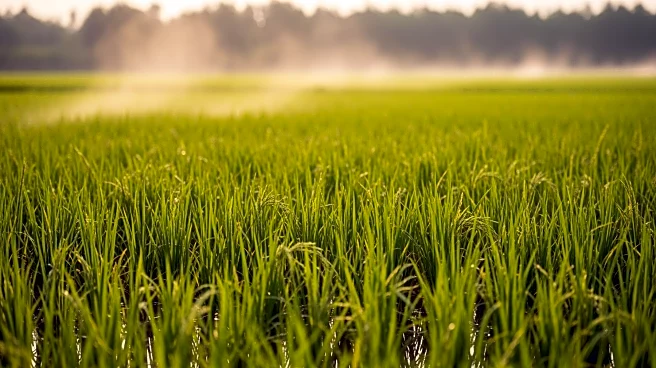What's Happening?
A United Nations Environment Programme report has identified India as the leading emitter of methane from agriculture, a potent greenhouse gas contributing to climate change. The report, released at the UN Framework Convention on Climate Change in Brazil,
states that agriculture accounts for 42% of global biogenic methane emissions, with livestock and rice cultivation being the primary sources. The G20 nations, including the U.S., contribute over 60% of these emissions. Without new mitigation policies, agricultural methane emissions are projected to rise significantly by 2050.
Why It's Important?
Methane is a significant contributor to global warming, with a more potent short-term impact than carbon dioxide. The report underscores the urgent need for effective mitigation strategies in agriculture, which is a major source of methane emissions. This is particularly relevant for countries like the U.S., which are part of the G20 and contribute significantly to global emissions. Addressing methane emissions is crucial for meeting international climate goals and reducing the harmful effects of climate change on health, agriculture, and ecosystems.
Beyond the Headlines
The report suggests that cost-effective mitigation strategies, such as improved rice cultivation and livestock management, could significantly reduce emissions. Additionally, shifts in food systems, including adopting healthier diets and reducing food waste, could further decrease methane emissions. These measures not only address climate change but also offer co-benefits like improved animal health and climate resilience, making them attractive options for policymakers and stakeholders.















